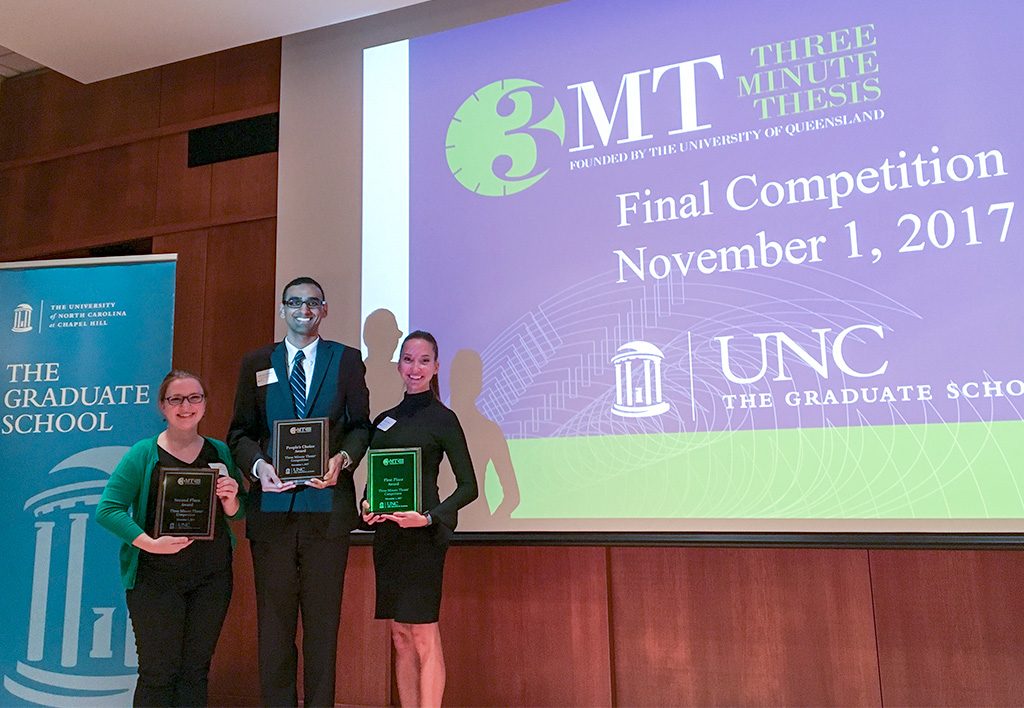Understanding how HIV remains in the bodyeven after treatment or discovering new materials to improve the way we capture and store solar energy takes months — or years — of research.
Katelyn Arnold, UNC-Chapel Hill 2017 Three Minute Thesis campus winner
Nicole Kahn, UNC-Chapel Hill 2017 Three Minute Thesis campus runner-up
Aaron Devanathan, UNC-Chapel Hill 2017 Three Minute Thesis people’s choice winner
But at the annual Three Minute Thesis competition finals, 10 University of North Carolina at Chapel Hill graduate students had only three minutes to explain their months of research.
“As a professional development experience, this was invaluable,” said Katelyn Arnold, one of the competitions finalists. “It really helped me to hone my skills on both clear and concise communication. Sometimes in science you can get caught in the details.”
Founded by the University of Queensland in Australia, the Three Minute Thesis is held at more than 200 universities around the world, challenging graduate students to showcase their research in just three minutes with only one visual element, such as a photo or graphic.
Graduate students from more than 20 programs across campus participated in the competition, which consisted of two preliminary rounds in October. The top five from each of those competitions qualified for the Nov. 1 finals. The overall winner earned $1,000 and a spot in the Three Minute Thesis regional competition, which will be held in Arkansas and will include graduate students from Texas to Virginia.
“Each year, our finalists impress the judges and audience members with their confidence, strong research findings and stage presence,” said Steve Matson, dean of The Graduate School. “We’re grateful to all graduate students who participate in this event. We always have a strong field of presenters; the diversity of research and the three-minute limit help create a thrilling experience.”
The competition provides graduate students with an opportunity to hone their communication skills to an interdisciplinary audience. Students will use those skills throughout their careers, Matson said.
“What we’re trying to do here is help them learn how to communicate beyond their program, which is a really important skill to take away so they can talk to a reporter, or somebody they meet on the street, or at a party, and not lose them or have their eyes glaze over,” Matson said.
Distilling a complex dissertation into a three-minute presentation with only one visual, however, is a challenge.
“The hardest part is trying to figure out what are the most important things because the things that are most important to me from a research perspective, may not be the most interesting or most important to the general audience,” said Nicole Kahn, one of the ten finalists. “You have to think about what is really going impact them.”
Students are critiqued on their ability to thoroughly explain their work without scientific jargon and how they engaged with the audience.
Arnold took home first place with her presentation on targeting destructive inflammation in acute liver failure with potential therapeutic compounds. Kahn placed second and Aaron Devanathan earned the people’s choice award.
Originally published Nov. 2, 2017 by UNC Communications

